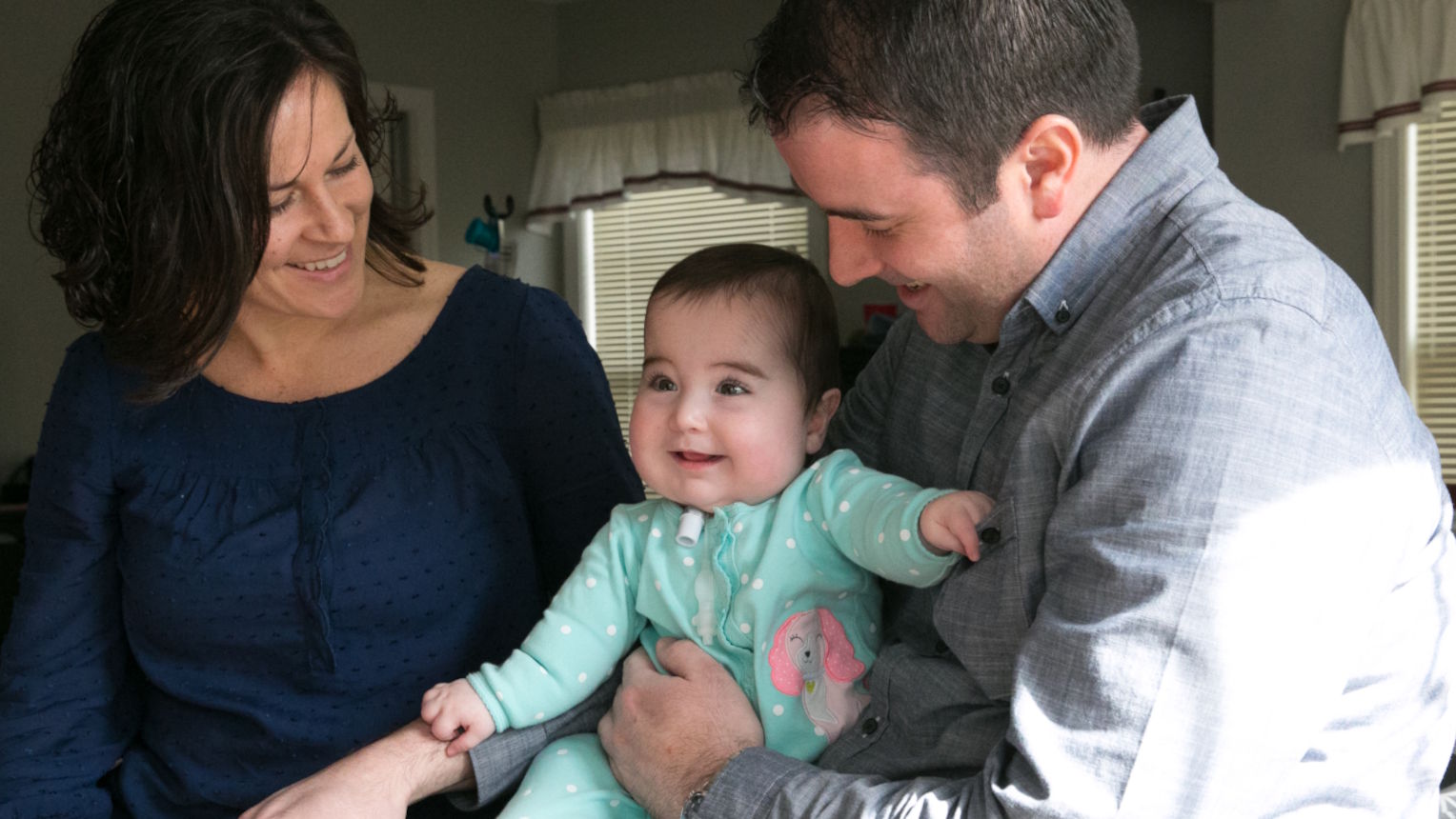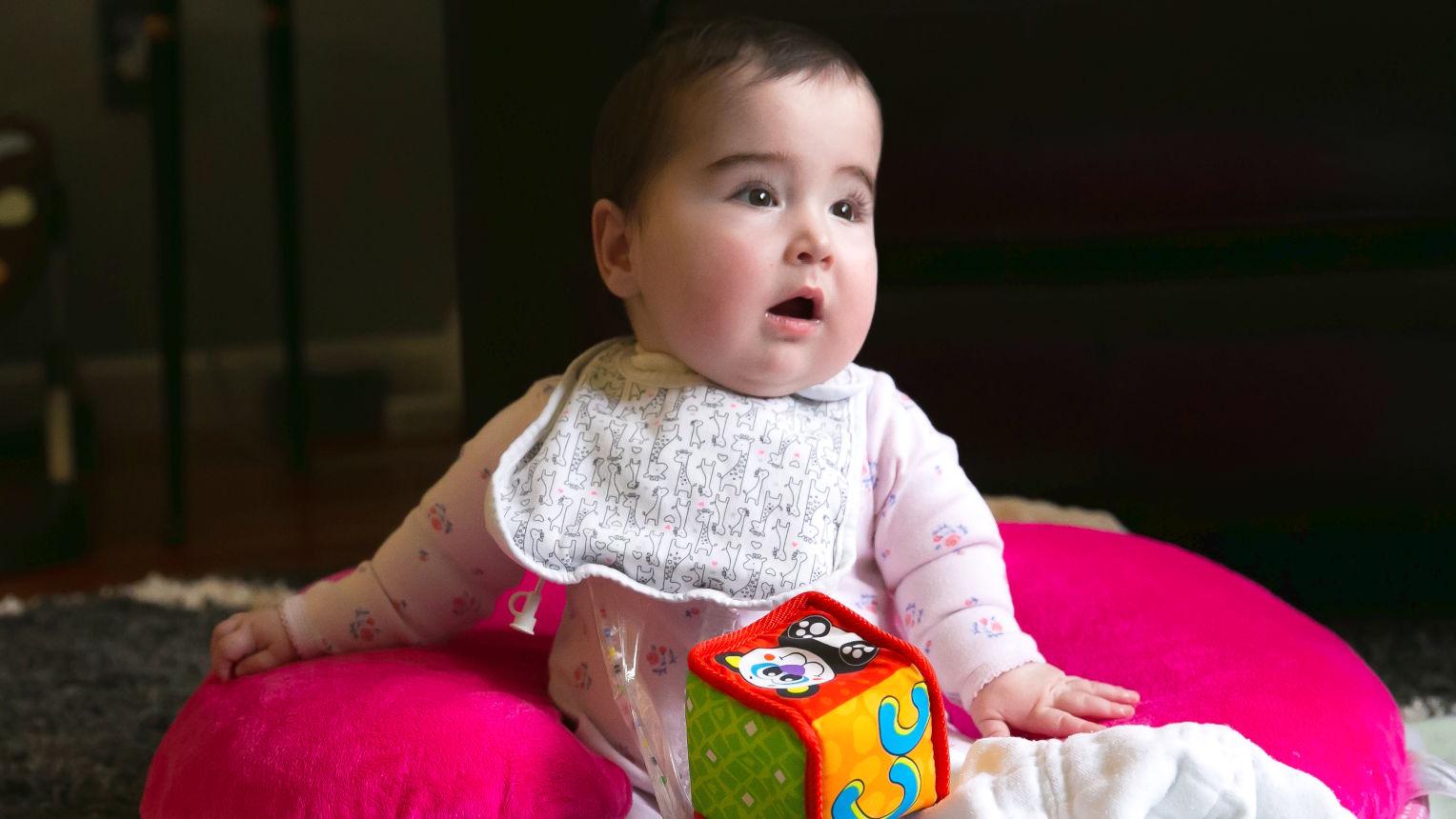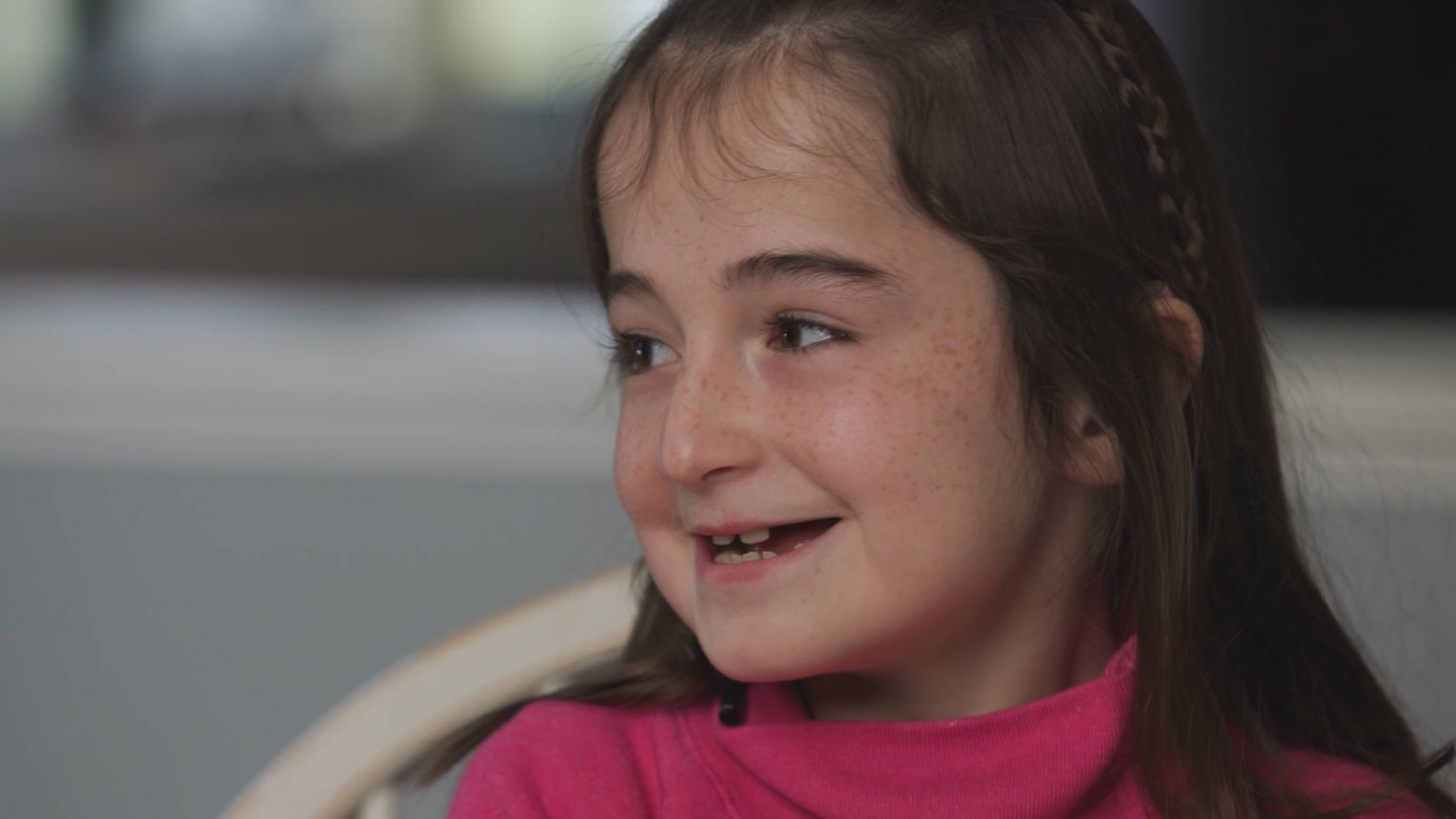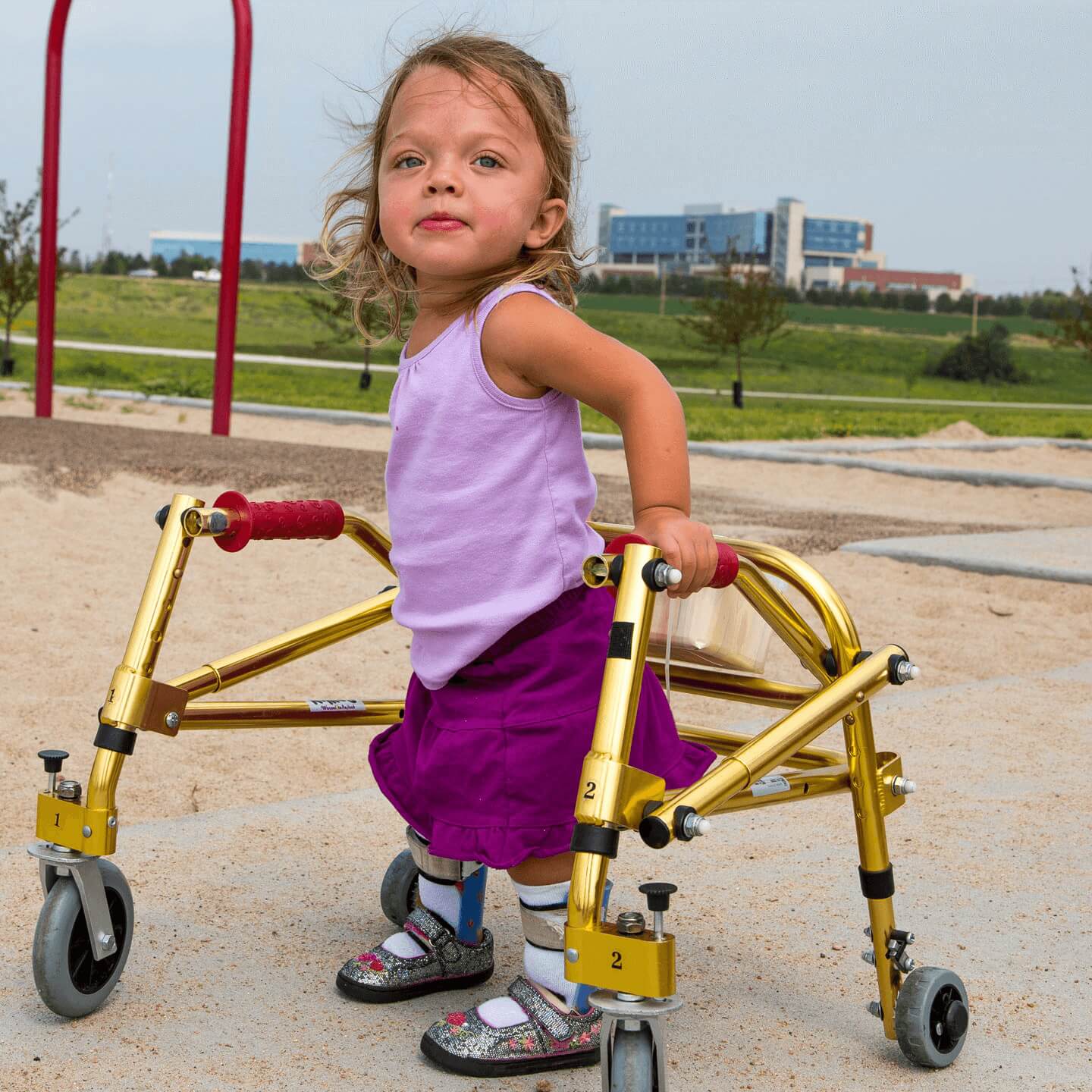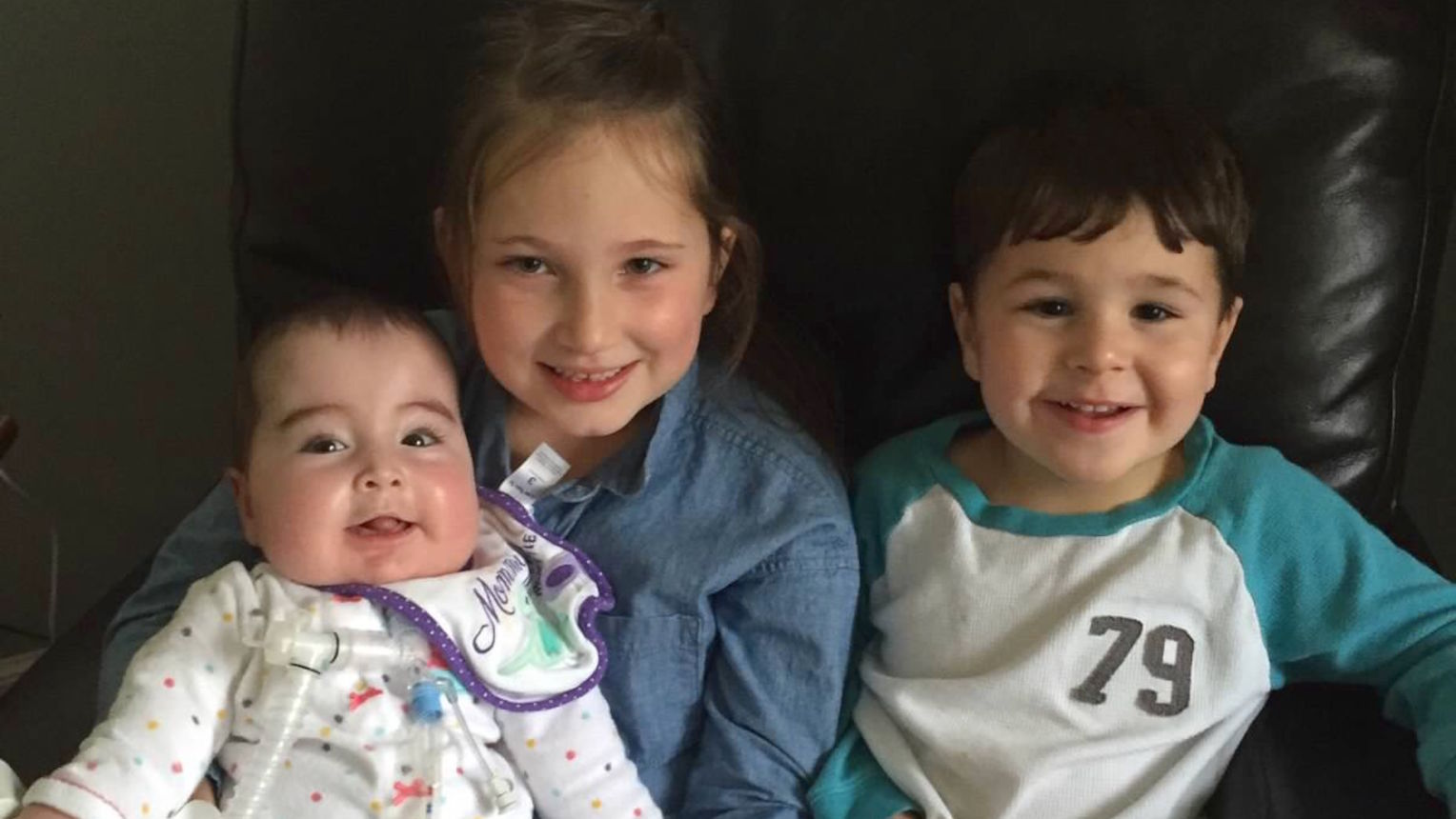
Meet Adelyn
Diagnosed at 2 days old and living with HPP
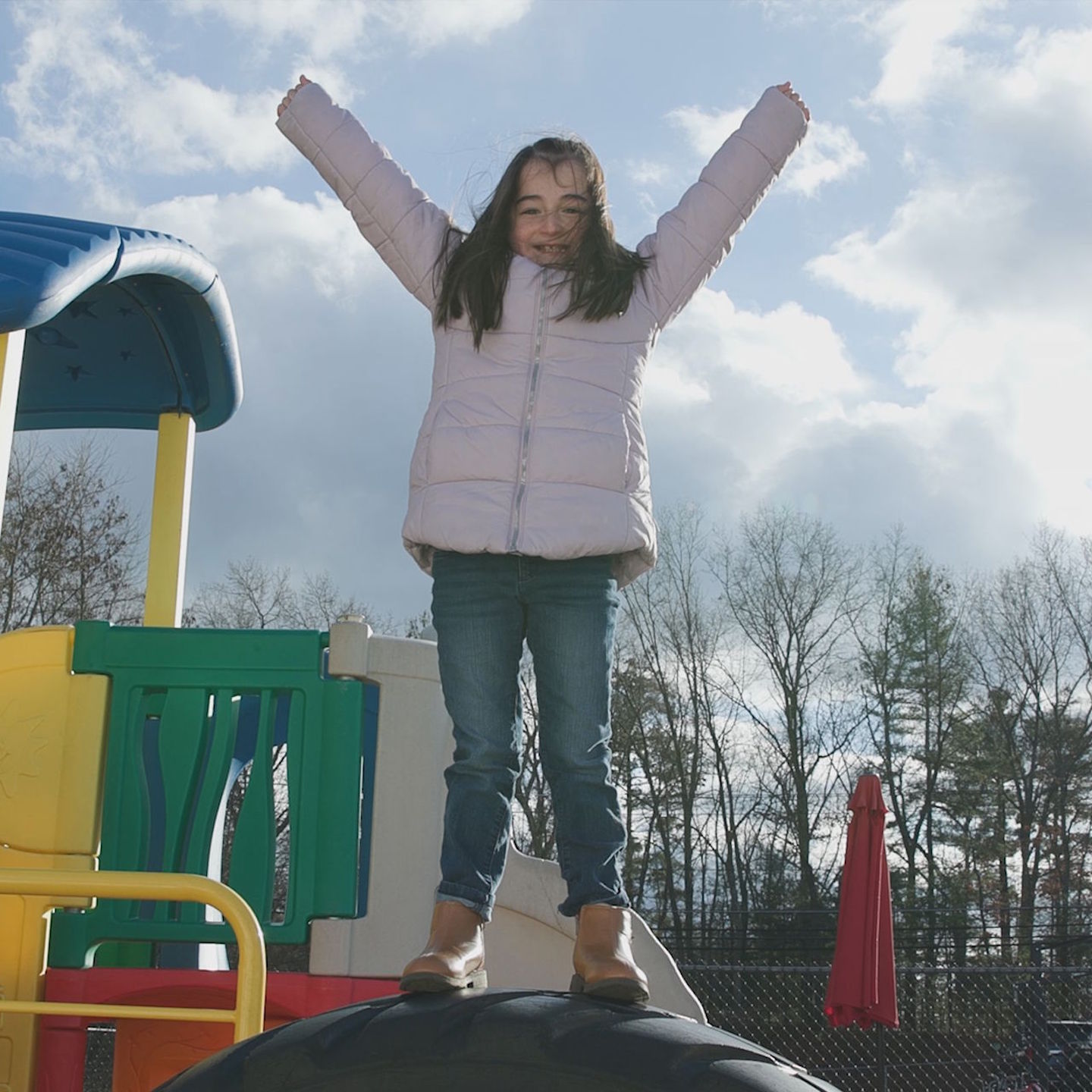
When Adelyn was born, she was very unhealthy and could not breathe properly. This was terrifying for her family. She was blueish in color and her limbs were going the wrong way. At only 2 days old, her X- rays, taken by her doctor, showed limited bone growth. To her father, it was like seeing a jigsaw puzzle with all the pieces missing.
When Adelyn’s mother, Jennie, found out she was pregnant with Adelyn, her third child, she remembers thinking, “I don’t care if it’s a boy or a girl, as long as it’s healthy.” And sure enough, Jennie had a healthy pregnancy with no signs that anything was wrong.
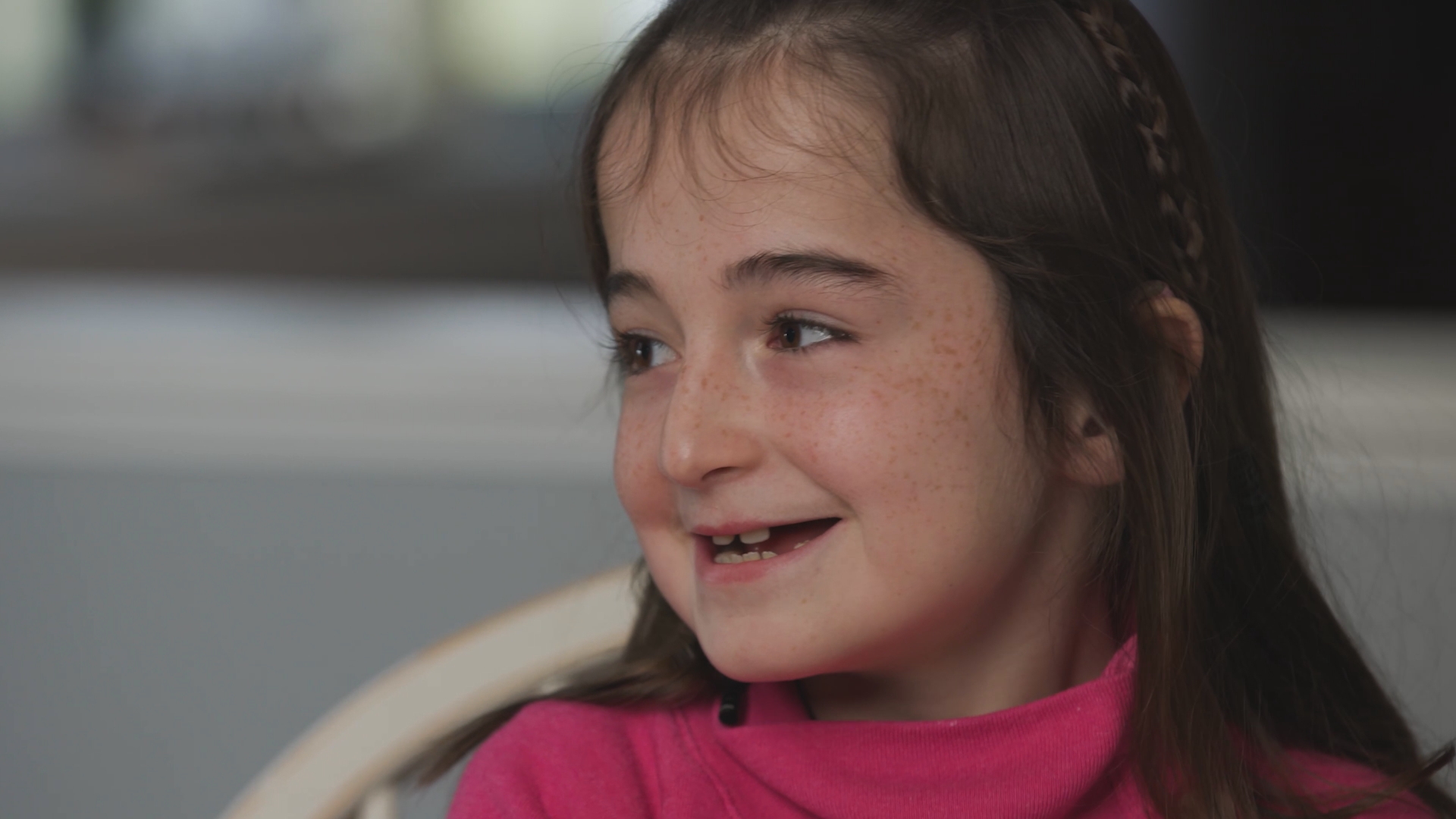
And then, Adelyn was born, and she was very unhealthy.
“When she took her first breath, her whole chest cavity collapsed. She was blue in color. Her limbs were going the wrong way. It was really terrifying,” said Adelyn’s father, Joe.
Adelyn’s doctor took X-rays, which came back showing limited bone growth, or, as Joe says, it was “similar to a jigsaw puzzle with all the pieces missing.”
After several days involving many tests, they determined that she had hypophosphatasia (HPP), a rare, inherited and progressive metabolic disease characterized by defective mineralization (the process that hardens and strengthens teeth) and regulation of minerals such as calcium and phosphate that impacts bone development and muscle and nervous system function.1,2 HPP is a systemic disease that can cause symptoms including musculoskeletal pain, muscle weakness and fatigue that can worsen over time and cause significant disability, impaired mobility or life-threatening complications.2,3 HPP can impact people of all ages and may be fatal, primarily in infants who manifest the disease before six months of age.1,3
At the time, Joe and Jennie learned that there were no approved treatment options, but that there was a clinical trial involving an investigational medicine. Joe and Jennie didn’t have to think twice about enrolling Adelyn.
At 12 days old, Adelyn received her first treatment, and after a few months of continued investigational treatment, Adelyn was able to return home.
Adelyn transitioned out of the clinical trial and her family continues to work with her medical team to manage her care.
When Joe sees his daughter he says, “She has defied everything we thought…she's just a fighter… she brings that sunshine. She knows that she's limited in some things, but she doesn't let it stop her.”
Today, Adelyn dreams of becoming a doctor when she grows up, because she thinks it’s “cool” to help people get better. Her father calls her an inspiration because of her early story and how she goes about her life now. “She hasn’t let it tear her down, she hasn’t lost anything from it,” says Joe.
References:
- Rockman-Greenberg C. Hypophosphatasia. Pediatr Endocrinol Rev. 2013;10(2):380-388.
- Seefried L, et al. Burden of illness in adults with hypophosphatasia: data from the Global Hypophosphatasia Patient Registry. J Bone Miner Res. 2020;35(11):2171-2178.
- Whyte MP. Physiological role of alkaline phosphatase explored in hypophosphatasia. Ann N Y Acad Sci. 2010;1192:190-200.

